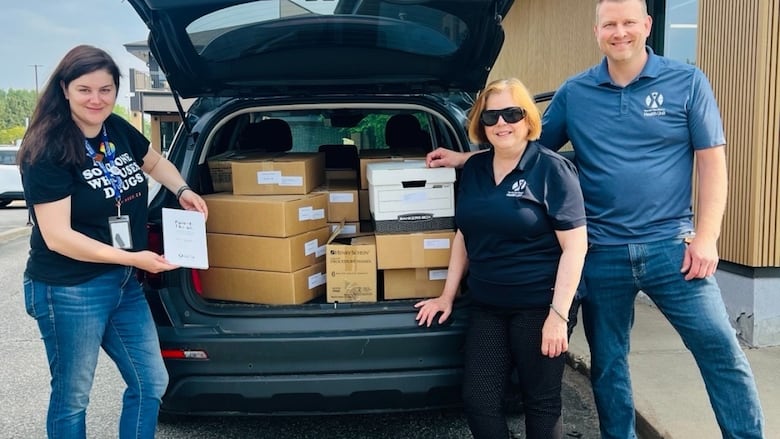Thunder Bay Public Health releases guide for parents of young people with addictions
'Parents Like Us' is a new tool to support caregivers for people with substance abuse problems

The Thunder Bay District Health Unit (TBDHU) has launched a new resource in response to the toxic drug crisis. It offers something many say has been missing, hope.
Parents Like Us: An Unofficial Guide to Caring for a Young Person Who Uses Substances was unveiled in June. The free handbook blends evidence-based guidance with lived experiences, storytelling and artwork from families who have navigated substance use firsthand. It was co-created with caregivers, youth and community partners.
"This resource is a testament to the resilience of parents and caregivers who continue to show up, even in the most challenging circumstances," said one Thunder Bay parent who contributed to the project in the media release.
Among the contributors is Clarence Fisher, a recovering addict, caregiver and community advocate who knows how substance use can ripple through entire families.
"The unmanageability spreads into the immediate family and friends and work, so the people surrounding a person living with addictions or substance use issues," Fisher said.
"Fear becomes very powerful. Having something physical that's transferring knowledge to you or tools, coping mechanisms that can help you on this journey, it's very powerful for us human beings to now have some light that shines the way for that journey."

Parents Like Us is adapted from a Victoria, B.C.-based resource originally developed by Foundry and the Canadian Centre on Substance Use and Addiction. The Thunder Bay version was shaped through conversations with local focus groups and consultations that took place over a year. It goes a step further by embedding northern Ontario voices and experiences throughout.
"It has local personal stories. It has advice written by parents. And then it also has different artwork and pieces and advice from youth. Because they wanted to explain how they wanted to be supported from that youth perspective," said Stephanie Diebolt, a TBDHU public health nurse who led the project.
The handbook includes nine chapters covering topics such as harm reduction, overdose response, communication strategies and how to navigate complex systems. But contributors say its real strength lies in its tone.
"It's not a do-it-yourself manual," said Fisher, who has been in recovery for 13 years."[I]t's basically a map to help you understand what you're experiencing and the directions that you need to go."
Fisher also emphasized the importance of caregiver boundaries and self-care, which is a central theme in the guide.

"There's a term that I use all the time that I can't pour from an empty cup. I'm unable to care," said Fisher, who helped his niece through recovery.
"If we don't set boundaries, one thing that happens to the person who's living with addictions, it's difficult for them to really come to the realization that their lives have become unmanageable or the damage that's causing on their life."
Fisher said this could lead to the caregiver "robbing" life lessons from the person living with addictions.
"It was important for them to have some support in a written form that can help them feel less alone,'" adds Diebolt.
Indigenous perspectives are also woven throughout the guide. The health unit says it is already exploring Ojibwe and French translations to make the resource more accessible across the region.

Parents Like Us is available in print at all TBDHU offices and can also be downloaded for free at tbdhu.com/parentslikeus. Community organizations can request up to 10 free printed copies.
For Diebolt, the guide is part of a much-needed cultural shift by sharing the voices of those who often go unheard.
"It was important to have a rich group that came from different backgrounds and experiences, whether it was lived experience with substance use, whether it was a dad or mom. I'm just capturing a group that could speak to different family situations in Thunder Bay," said Diebolt.
"There's just a lot of people who are just doing the best they can with what they know or what's accessible to them. We're hoping that this book opens up more ideas and conversations about substance use health in general."
With files from Marichka Melnyk

